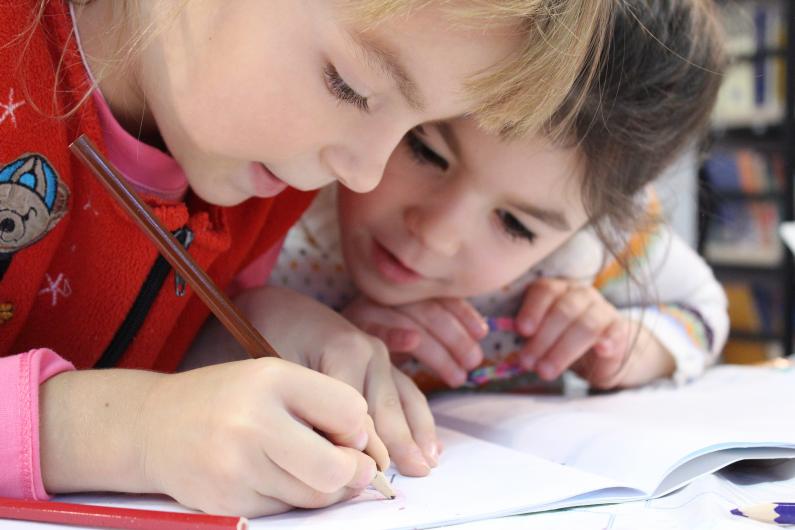YouPlanIt Classroom Trial Report
YouPlanIt Classroom (YPI) Trial, November 2017
I've had the privilege of working with students in a large school here in Christchurch to introduce them to YPI for the first time. The thing I hear again and again is how easy it is to use YPI. With very little support from teachers, the students immediately understood how to apply the concepts within YPI to plan their own lesson, to support their learning and communicate their ideas to the world. The results of the student's work were outstanding and it made us all recognise the incredible potential of YPI to support our students to become independent thinkers and powerful contributors to their communities and abroad.
Trial Report
Key areas of this report
- Who was involved?
- What did YPI set out to achieve?
- What were the limitations of the trial?
- What were the benefits of the trial?
- What was achieved?
- How can I view student’s work?
- Growth opportunities?
- What were some of the challenges the students’ faced?
- How can we move forward?
Who was involved?
- /////////////// – teacher of Year 8 Class
- Tala Pasley (Natanaelle Vos Pasley) – Primary teacher not employed at Villa Maria but holds a Full Practicing Certificate (162366) – known to ////// ///////
- Students – /////, //////, ///// and //////
- ///// //////// College, Christchurch
What did YPI set out to achieve?
- Test the concept of YPI in a real classroom setting with real students
- Determine the value of YPI in terms of student self-directed learning
- Prove the concept of saving teachers’ time
- Identify areas for improvement
- Identify areas of strength
What were the limitations of the trial?
- The trial was not undertaken by the ‘class teacher’ but by a Primary trained teacher with 20 years of experience and currently holding full registration.
- The students only had one hour a week with a teacher (Tala Pasley) – (also a benefit)
- Students had only one trial – there was so much more they could have done to improve their work but needed more experience with YPI –
- The students had a lot more to learn about YPI and how it could support their learning – this will happen once they use YPI more.
- The students didn’t experience the full benefit of the frameworks and the feedback system within these frameworks due to lack of experience
- YPI is still in its infancy – Social Science was not up and running until later in the term – Social Sciences would have made the process even easier because it supported the student’s Wonder/Inquiry project so perfectly – Social Science is now up and running.
- Still learning about YPI and how it would function in ‘real life’ and therefore the support to the students may not have been as directive as they’d hoped.
- Because it was not run by a teacher currently employed at the school, Villa Maria, it was hard to determine time-saving for the teachers. However, the results of only spending one hour a week with students and then witnessing the exceptional results were absolutely inspiring.
What were the benefits of the trial?
- There was minimal input from a teacher so students had to rely on themselves to deliver a project
- Because the students could study a project of personal interest the level of engagement was higher and more student-driven
- When it came to present to the classroom there was a high level of anticipation, the students knew every presentation was unique and different
- It was empowering for the students to know they had so much control of the context for learning and could showcase their unique talents
- There was a very strong presence of ownership and therefore each student had a very clear understanding of their learning journey. Each student completed honest and revealing insights into their learning journey throughout their final reflections. This will drive their next project and empower them to make changes
- Students found YPI very easy to use and supported their thinking
- Time management was easier for those that struggled in this area – ////////
What was achieved?
- Students chose their own context for learning around the concept of ‘Cause and Effect’
- Students carried out a Wonder/Inquiry project to determine a ‘Big Question’
- Students chose their own resources
- Students created their own learning intentions and success criteria after understanding what they set out to achieve determined by the Wonder/Inquiry project
- Students created their own sub-plan/s to support their Wonder/Inquiry to get it ready for presentation using the NZ Curriculum as a tool to structure their learning
- Students had to determine what area of the New Zealand Curriculum would be a ‘best fit’ for their project – there is a lot of growth that can happen here. It was great to see them really thinking about the keywords around the curriculum subjects and how they could structure their learning around these
- Students chose the best way to communicate their Wonder/Inquiry project through a range of options
- Students presented their work to their class and teacher
- Students requested specific feedback before publishing work
- Students completed a digital Self-Assessment – teacher responded to this
- Students completed a Reflection
How can I view student’s work?
- All the students’ work, self-assessment, reflections and marks can be viewed through Tracey Cringle’s user name and password
What were some of the challenges the students’ faced?
- Starting a new software program, they had never used before
- Being the first to use YPI required a level of trust that had not been tested
- Feeling the odd ones out from the rest of the class that was completing an inquiry on water. This proved to have the opposite effect once the presentations were completed. All the students involved in the trial wanted to do it again and others that were not part of the trial said they wished they had the same opportunity.
- Taking a higher level of ownership for learning and taking full responsibility for its outcome
- YPI experienced some glitches that needed to be addressed ‘on-the-spot' but were quickly resolved on site.
Growth opportunities?
- Starting off slowly seems the most logical approach. The software program places students at the centre of their learning - using the modern pedagogical methodology and inquiry processes. The skills required for self-directed learning are broad and will take time to develop and become part of the school’s culture. It is something to aspire to but may not fit every student and should be determined by the school and teachers as they begin to see the value of YPI and its benefit to individual students.
- With the small trial and its shortcomings, YPI was quickly recognised for its ability to empower students in their personal learning journey and strengthen their personal growth as individuals.
- A larger trial next year with a teacher of another class (or more) would be great. Professional development is available to support the process of YPI integration.
- Create groups – students collaborating together on a topic of interest together
- Teachers working collaboratively together with students across classrooms
How can we move forward?
- Contact us if you feel YPI could make a difference to your school and we can talk about how to implement YPI into your classrooms.
https://info.youplanit.org/personalised-learning-and-student-voice


